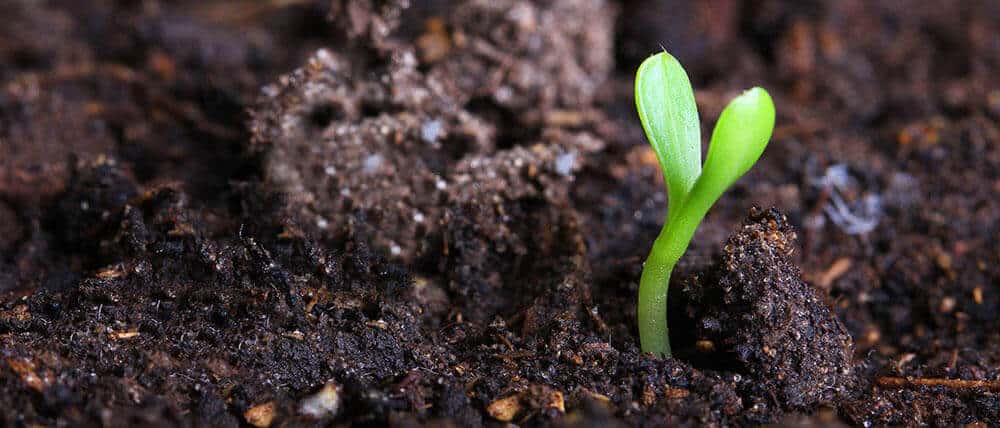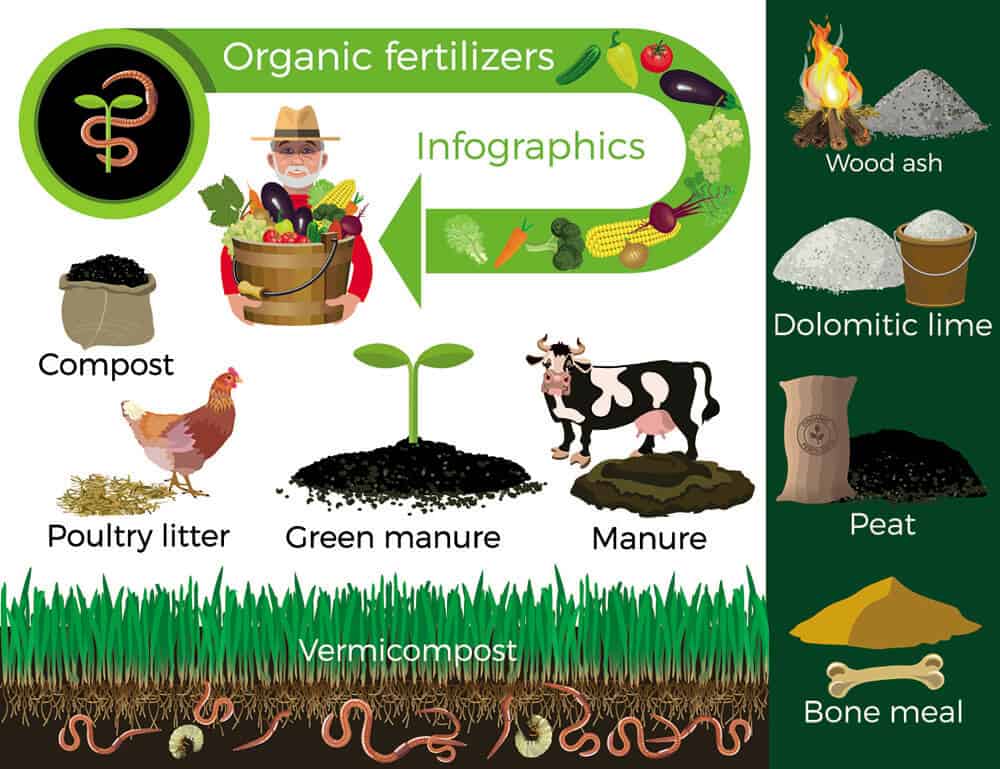What is Organic Fertilizer Definition
- 获取链接
- X
- 电子邮件
- 其他应用
What's Organic Fertilizer
Nowadays, as the level of modernization of agriculture is getting higher and higher, sustainable agriculture is an important global issue. Organic food is receiving more and more attention.
According to the trend, organic fertilizers are becoming the first choice for many people. Widely used for vegetables (tomatoes, lettuce, cucumber), fruits (strawberries, grapes, citrus), Cash crops (grass, flowers, cannabis)

Organic Fertilizer Definition
Organic fertilizer is also called “farm manure.” The definition of organic fertilizer is simple. Mostly, it refers to compost made from animal waste or animal and plant residues that are rich in natural by-products. For example, guano, dried and powdered blood, ground bone, crushed shells, finely pulverized fish, phosphate rock, and wood.
The nutrient elements contained in organic fertilizer are mostly inorganic state, so it is difficult for crops to use them directly. Through the action of microorganisms, a variety of nutrient elements are released slowly to provide nutrients to plants continuously.

Type of Organic Fertilizer
Organic Fertilizers are different types of fertilizers derived from vegetable matter, mineral matter, animal matter, etc. Here are some of the most common kinds of organic fertilizers:

Animal-Based Fertilizers
1. Bone Meal
Bone meal is made from crushed animal bones. It’s rich in phosphorus and calcium and supplies some nitrogen. It can promote plant seedling growth, help flowers grow, and increase yield.
Bone meal is made from crushed animal bones. It’s rich in phosphorus and calcium and supplies some nitrogen. It can promote plant seedling growth, help flowers grow, and increase yield.
2. Blood meal
A blood meal is a dried form of animal blood. It can increase the nitrogen content in the soil and makes the plants denser. Release nitrogen quickly promotes flowering and acts as a natural pest repellent.
A blood meal is a dried form of animal blood. It can increase the nitrogen content in the soil and makes the plants denser. Release nitrogen quickly promotes flowering and acts as a natural pest repellent.
But usage and application should be done sparingly, as over-application can contribute to the burning of the plant root.
3. Animal Manure
It can come from a variety of animals. For example: cow manure can control weeds and increases the moisture-holding capacity of the soil and increases air penetration in the soil.
Seabird guano is an organic fertilizer for lawns. It can act as a natural fungicide and control nematodes in the soil.
It can come from a variety of animals. For example: cow manure can control weeds and increases the moisture-holding capacity of the soil and increases air penetration in the soil.
Seabird guano is an organic fertilizer for lawns. It can act as a natural fungicide and control nematodes in the soil.
4. Fish meal
Fish meal is a fast-release fertilizer that is a rich source of organic nitrogen, phosphorus, and calcium. It can improve soil health, increase fertility, and make plants thrive.
Fish meal is a fast-release fertilizer that is a rich source of organic nitrogen, phosphorus, and calcium. It can improve soil health, increase fertility, and make plants thrive.
5. Fish Emulsion
This blend of finely ground, decomposed fish delivers a big dose of nitrogen. Acts as a soil conditioner. But be careful. Fish Emulsion is highly acidic, and overuse can burn plants.
This blend of finely ground, decomposed fish delivers a big dose of nitrogen. Acts as a soil conditioner. But be careful. Fish Emulsion is highly acidic, and overuse can burn plants.
6. Shellfish
Shellfish are made from the broken shells or bones of shellfish and crabs.
Shellfish organic fertilizers are rich in calcium and also contain significant amounts of phosphorus and other trace minerals.
That means it can help spur flowering and robust root growth. Also, it has chitin, which inhibits the growth of some pests.
Shellfish are made from the broken shells or bones of shellfish and crabs.
Shellfish organic fertilizers are rich in calcium and also contain significant amounts of phosphorus and other trace minerals.
That means it can help spur flowering and robust root growth. Also, it has chitin, which inhibits the growth of some pests.
Plant-Based Fertilizers
1. Compost
Compost is rich in nutrients and can be used as an excellent soil improver to promote organic matter and soil fertility.
It provides rich growth nutrition for plants, which can retain water in the soil for a long time.
Compost is rich in nutrients and can be used as an excellent soil improver to promote organic matter and soil fertility.
It provides rich growth nutrition for plants, which can retain water in the soil for a long time.
2. Cottonseed Meal
Cottonseed Meal is a rich source of nitrogen and a small amount of phosphorus and potassium. It can be an excellent organic fertilizer grass.
It is mainly used to cover the garden soil to regulate the soil environment.
Cottonseed Meal is a rich source of nitrogen and a small amount of phosphorus and potassium. It can be an excellent organic fertilizer grass.
It is mainly used to cover the garden soil to regulate the soil environment.
3. Alfalfa and Soybean meal
It contains nitrogen, phosphorus, and neutral pH.
Soybean meal is a functional additive for longer-lasting results during soil maintenance.
It contains nitrogen, phosphorus, and neutral pH.
Soybean meal is a functional additive for longer-lasting results during soil maintenance.
4. Seaweed
Seaweed is an immediate-release fertilizer and an excellent source for zinc and iron. It goes well with the high-potash crop.
Seaweed is an immediate-release fertilizer and an excellent source for zinc and iron. It goes well with the high-potash crop.
Mineral Fertilizers
1. Greensand
Greensand is an olive-green sandstone containing glauconite. It is a rich source of iron, potassium, and magnesium.
It aids in the stimulation of flowering and fruition in fruit trees. And loosen the soil, increase the water content in the soil to improve the rhizosphere.
Greensand is an olive-green sandstone containing glauconite. It is a rich source of iron, potassium, and magnesium.
It aids in the stimulation of flowering and fruition in fruit trees. And loosen the soil, increase the water content in the soil to improve the rhizosphere.
2. Rock Phosphate
Phosphate is extracted from mineral rocks and clay.
It has over 30% phosphate, together with high concentrations of trace micronutrients. It can be used to increase soil acidity and promote plant seedling growth.
Phosphate is extracted from mineral rocks and clay.
It has over 30% phosphate, together with high concentrations of trace micronutrients. It can be used to increase soil acidity and promote plant seedling growth.
Pros and Cons of Organic Fertilizers

Pros of Organic Fertilizer
A. Boost both nutrient efficiency and organic matter content in the soil
It improves water movement into the soil and, in time, add structure to the soil. Organics feed beneficial microbes, making the soil more comfortable to work.
It improves water movement into the soil and, in time, add structure to the soil. Organics feed beneficial microbes, making the soil more comfortable to work.
B. Enhanced soil fertility and improved soil texture, drainage, and aeration.
It can help the soil continuously condition and rejuvenated, thereby improving soil texture, drainage, and aeration.
It can help the soil continuously condition and rejuvenated, thereby improving soil texture, drainage, and aeration.
C. Enhance the quality attributes of produce as well as yield
It contains a large number of nutrients needed by plants, which provide relatively smooth and lasting nutrients to plants and have a long aftereffect.
It contains a large number of nutrients needed by plants, which provide relatively smooth and lasting nutrients to plants and have a long aftereffect.
D. Total Environmentally friendly
They are renewable, biodegradable, sustainable, and environmentally friendly.
It does not contain the harmful chemicals that contribute to the pollution and contamination of water and land.
They are renewable, biodegradable, sustainable, and environmentally friendly.
It does not contain the harmful chemicals that contribute to the pollution and contamination of water and land.
Cons of Organic Fertilizer
Before nutrients can be released into the soil, microorganisms need to break down the organic components. As organisms need suitable temperature and sufficient water to do their jobs, the effectiveness of organic fertilizers is limited by these factors.
So organic fertilizers may take much longer to take effect than chemical fertilizers
But please be patient, when microbial populations re-establish themselves, organic fertilizers will be faster and more efficient.
So organic fertilizers may take much longer to take effect than chemical fertilizers
But please be patient, when microbial populations re-establish themselves, organic fertilizers will be faster and more efficient.
Conclusion
Organic gardening emphasizes cultivating your garden to maintain fertile soil, plants, and beneficial insects.
This is achieved by avoiding the use of synthetic fertilizers and pesticides, and by using products that nurture the garden soil and the organic matter in it.
Proper use of organic fertilizers can give you a bumper crop of vegetables or flowers that will be the envy of your neighbors.
When you adopt the concept of organic fertilizer, your plants and crops will experience a balanced, nutrient-rich ecosystem that can work according to natural expectations.
Referenfce:
Organic Fertilizer https://www.doraagri.com/what-is-organic-fertilizer-for-plants/
- 获取链接
- X
- 电子邮件
- 其他应用


评论
发表评论